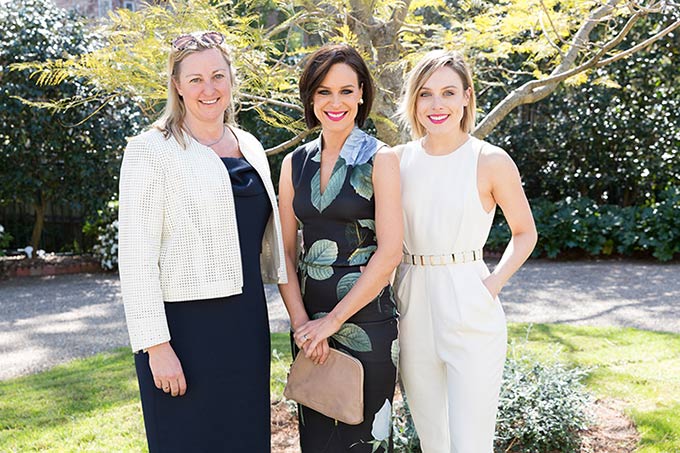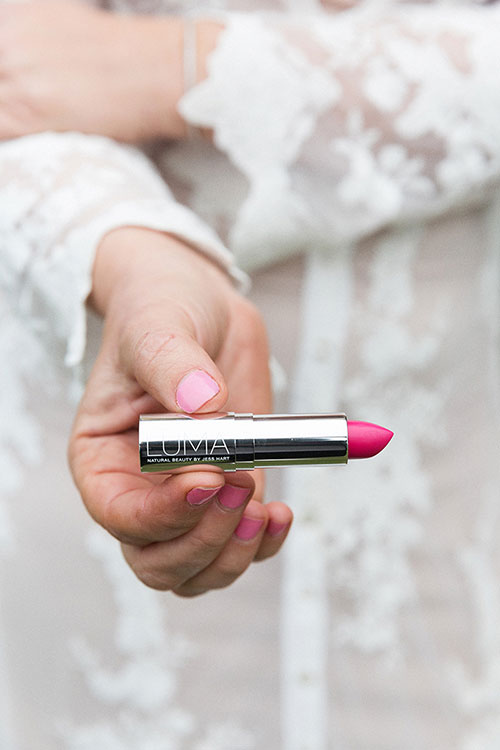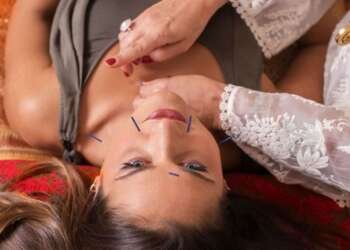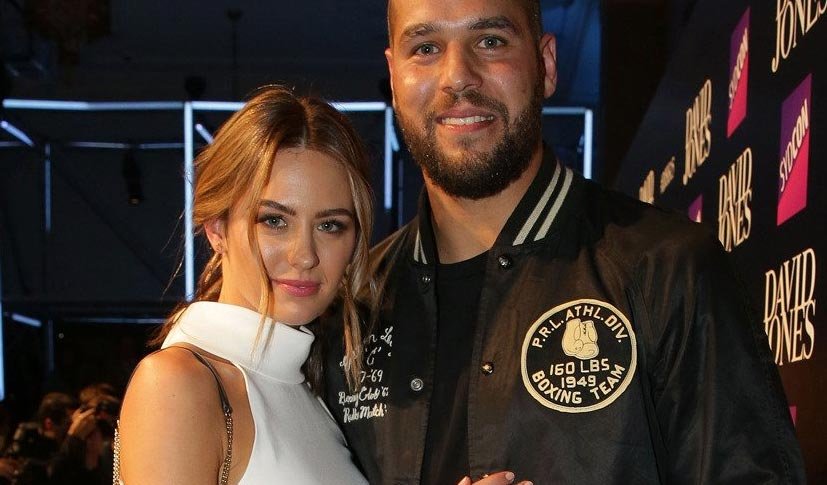Bridget Whelan (41), who has been diagnosed with ovarian cancer, reinforced that message at the event, “Men need to talk to their loved ones and investigate the women in their family.” Sadly Bridget’s BRCA cancer ran on her father’s side of the family and at a time when men didn’t talk to their sisters, mothers and daughters about their cancer risks. Here, Bridget talks about her experience with cancer.
I was diagnosed with ovarian cancer five years ago when I was 36. Since then, I’ve had chemotherapy twice and abdominal radiation therapy. I’m currently on my second recurrence and my third go at chemotherapy. Despite all of that, I consider myself lucky.
For all women, a diagnosis of ovarian cancer is devastating. And for most, three out of every five of us, it means we’ll be dead within five years. So today, five years later, I know I’m really lucky.
I have a BRCA mutation. Like Angelina Jolie, having this genetic mutation puts me at a significantly increased chance of breast and ovarian cancer.
I got it from my Dad. I don’t say that to blame him, he’s terrific and it’s not his fault. But a lot of people think it’s only passed down from mother to daughter. It’s not. You can get the genetic mutation from either of your parents and if one of them has it, there’s a 50-50 chance you may have it.
My cousin Elizabeth was diagnosed with ovarian cancer about 18 months before me. She was in her early 40s just like I am now with four young children. She died a few years later.
After I was diagnosed, I learned a paternal aunt had had ovarian cancer in her sixties. I think women of that era didn’t talk so openly about their girly bits, and certainly didn’t talk to their brothers about it. We thought there might be a genetic link. So I had genetic testing and when I knew I had the mutation it became really important to me that the rest of my family had the opportunity I didn’t have – to have genetic testing and take action before it was too late.
That’s because if you know you have the mutation, you can have preventative surgery to reduce your risk of breast and ovarian cancer – a mastectomy and hysterectomy. These are of course major decisions, but they are decisions Australian women with known genetic mutations are now making every day.
This disease has taken its toll on my family, hitting three of us within five years plus my aunt, all with ovarian cancer.
 Robyn Foyster, Natarsha Belling & Casey Burgess at the launch of @brightpinklipstickday
Robyn Foyster, Natarsha Belling & Casey Burgess at the launch of @brightpinklipstickday
For women who do have the mutation, an organisation like Pink Hope is essential. There’s nowhere else to go for straightforward information and advice about testing, its ramifications and the options available. It’s a confusing and scary time. Women and their families need the support Pink Hope provides.
I just wish more families had the opportunity to be tested.
Right now testing rates across Australia are patchy. It’s not covered by Medicare and so relies on different state hospital systems for who will be funded to have genetic testing. So it depends on where you live. Which is stupid and unfair.
While Australian doctors and geneticists have sat in a room and decided, from a best practice medical perspective, who should be tested, that’s not what’s happening. Those wise minds have pretty much said all women diagnosed with ovarian cancer under 70 should have genetic testing, yet a recent survey showed only half have actually been offered testing.
Similarly, women in the community with a family history often aren’t screened by their GP. No one asks them their family history and they don’t know to tell them about their mum or their aunts.
 Margie Abbott & Krystal Barter at the #brightpinklipstickday launch
Margie Abbott & Krystal Barter at the #brightpinklipstickday launch
All of these missed opportunities mean women like me develop breast and ovarian cancers when they could have been avoided. Their lives are turned upside down and oftentimes shortened because we didn’t offer them genetic testing.
The cost of treating a woman with breast cancer is about $1 million and for ovarian cancer it’s even more. The cost of a genetic test is a tiny fraction of that. Even if we ignore the fact it’s what the experts say we should do, and the obvious benefits of avoiding cancers, and we look at it in economic terms alone, it make sense to offer more genetic testing.
As someone who missed that opportunity and is now living with the consequences, I am working to change this, with Pink Hope. We hope the future will see the experts’ guidelines followed and Medicare pay for genetic testing for breast and ovarian cancer so we have a real chance at preventing more women developing terminal cancers like mine.
We’re asking everyone to make their pout count today (Friday September 25th)! It’s Bright Pink Lipstick Day so wear the shade as a fun and fabulous way to raise awareness of hereditary breast and ovarian cancer by posting their pout online for the charity Pink Hope #brightpinklipstickday
Supermodel Jess and sister Ash Hart are back on board as ambassadors with Jess designing a natural and exclusive Pink Hope Lipstick for her LUMA cosmetics range. Retailing for $19.95, the all-Australian made lipstick will be available online at here with 100% of sales going directly to the charity.
We aim to raise $250,000 and invest the funding into our critical prevention programs and support services which help families assess, understand and manage their risk of breast and ovarian cancer.

















